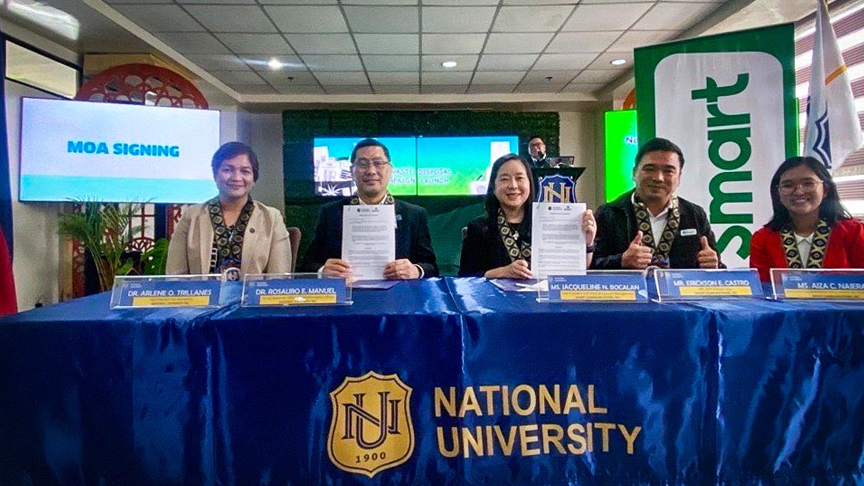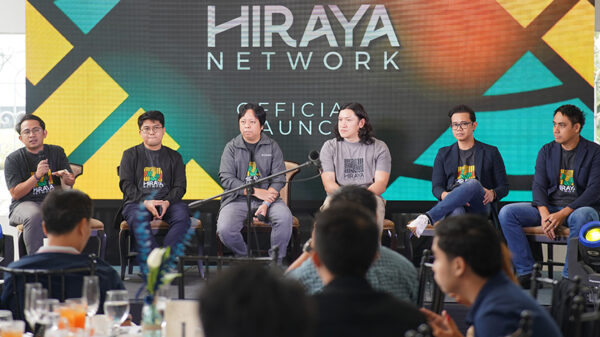To boost action and promote the circular economy particularly to colleges and universities in the Philippines, PLDT wireless unit Smart Communications, Inc. (Smart) formalized a partnership to promote proper electronic waste (e-waste) disposal and recycling with the National University (NU) and SM Cares of SM Supermalls in Manila.
Under its ‘Be Kind. Recycle.’ program, Smart continues to engage with communities, particularly with schools and students, so that they can properly dispose of their e-waste, enable recycling, and contribute to the movement towards a circular economy within their communities.
Present during the signing were NU Vice President for Operations Dr. Arlene O. Trillanes, NU Group Academic Officer/Chief Information Officer Dr. Rosauro E. Manuel, Smart Vice President and Head of Channel Management Jacqueline N. Bocalan, Smart Officer-in-Charge NCR Wireless Sales Erickson E. Castro, Smart Senior Community Development Officer Aiza C. Najera, and PLDT and Smart Corporate Sustainability Executives Rhea Dienzo and April May Kagaoan.
Students, faculty, and staff, as well as visitors can drop off their e-waste in PLDT and Smart e-waste collection bins located in select NU campuses. Accepted e-waste items include old and broken telephones, routers, mobile phones, tablets, laptops, chargers, cords, batteries, power banks, USBs, among others. E-waste collected are brought to accredited e-waste treatment, storage, and disposal facilities. These facilities are operated by skilled workers and equipped with proper tools to harvest valuable components for recycling and dispose of hazardous components in e-waste. Such process generates recycled plastics, metals, and other components that can be used as raw materials to produce new electronics and devices.
Through these collaborations and initiatives, PLDT and Smart continue to support the country’s transition to a Circular Economy. As a key component of the Philippines’ Nationally Determined Contribution to the Paris Agreement on Climate Change, the circular economy is aimed at reducing waste and greenhouse gas emissions through the adoption of sustainable modes of production and consumption.










































































































